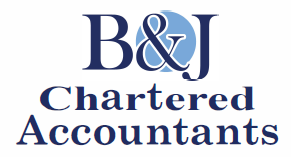Unpaid tax from cryptocurrency transactions targeted
HMRC is writing to individuals who may need to pay tax on the disposal of cryptoassets such as Bitcoin. Why might tax be due and what should you do if you receive a letter?

HMRC is currently writing to individuals who have disposed of cryptoassets because the tax treatment is widely misunderstood and therefore tax may have been underpaid.
Most will understand that tax may be due if there is a capital gain once cryptoassets have been sold for cash. However, each time a cryptoasset is disposed of a capital gain may be triggered. This would include the following events:
- using cryptocurrency to purchase goods or services
- exchanging one type of cryptoasset for another; or
- gifting cryptoassets.
In certain circumstances, income tax and NI may be payable. If you receive such a letter from HMRC, you must take action within 60 days even if no tax is due. If you submitted a tax return, the return should be amended where possible. If you did not submit a tax return, or the deadline has passed, you should use the dedicated disclosure service to inform HMRC.
Further guidance on taxable cryptoasset transactions can be found here.
Related Topics
-
Planning ahead for pension salary sacrifice changes
From 6 April 2029, both employers and employees will be required to pay Class 1 NI on pension contributions in excess of £2,000 made through a salary sacrifice arrangement. What can you do about it?
-
Marginal relief - responding to an HMRC nudge letter
HMRC is running a campaign to clamp down on incorrect claims for corporation tax marginal relief (MR). In what circumstances might you be challenged by HMRC and how should you respond?
-
Can you claim input tax on costs linked to electric cars?
Your business intends to go green and buy new electric cars. Can you claim input tax on the purchase of the vehicles and their subsequent fuel costs? Additionally, what recent change has been announced by HMRC?




 This website uses both its own and third-party cookies to analyze our services and navigation on our website in order to improve its contents (analytical purposes: measure visits and sources of web traffic). The legal basis is the consent of the user, except in the case of basic cookies, which are essential to navigate this website.
This website uses both its own and third-party cookies to analyze our services and navigation on our website in order to improve its contents (analytical purposes: measure visits and sources of web traffic). The legal basis is the consent of the user, except in the case of basic cookies, which are essential to navigate this website.